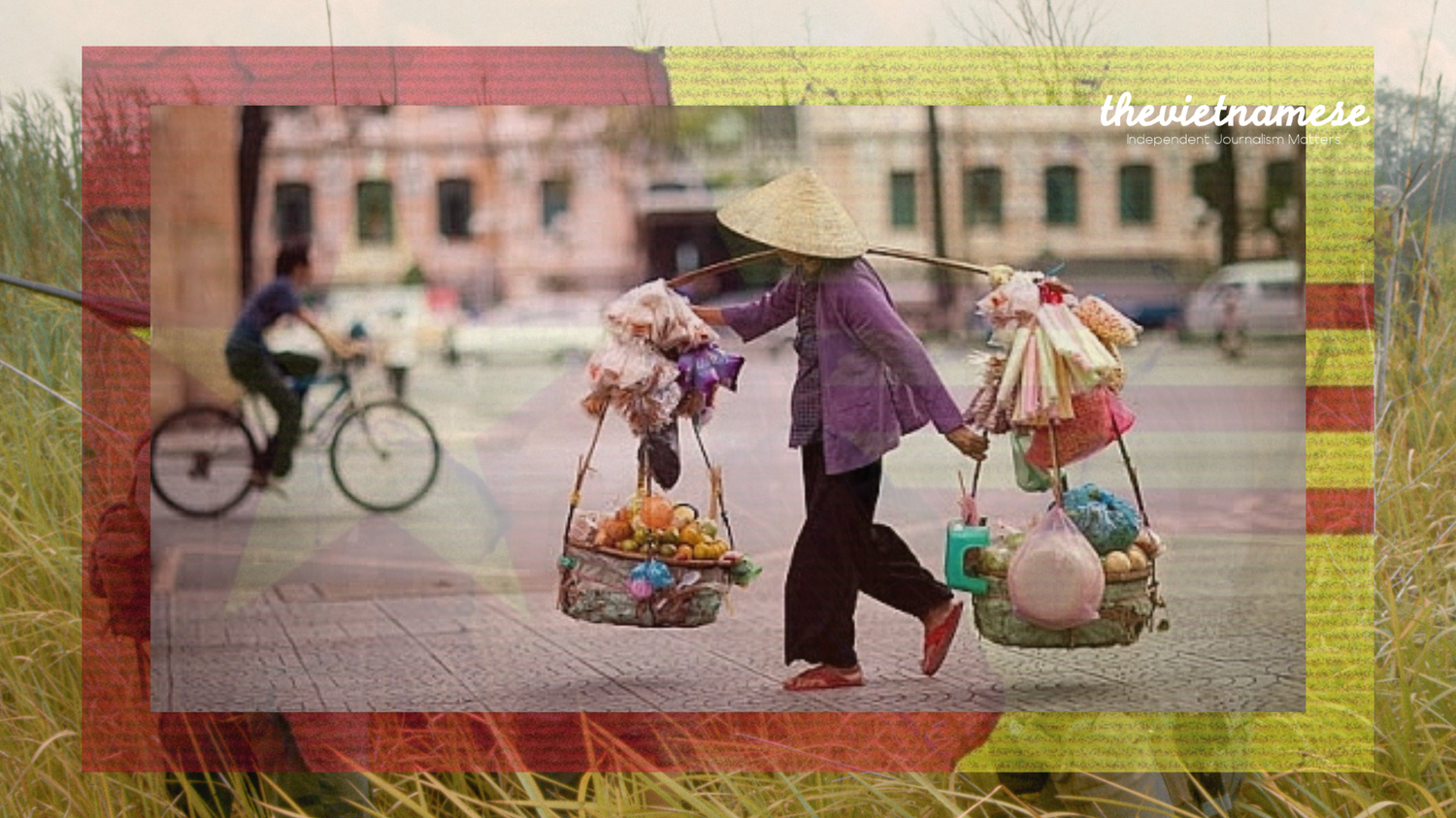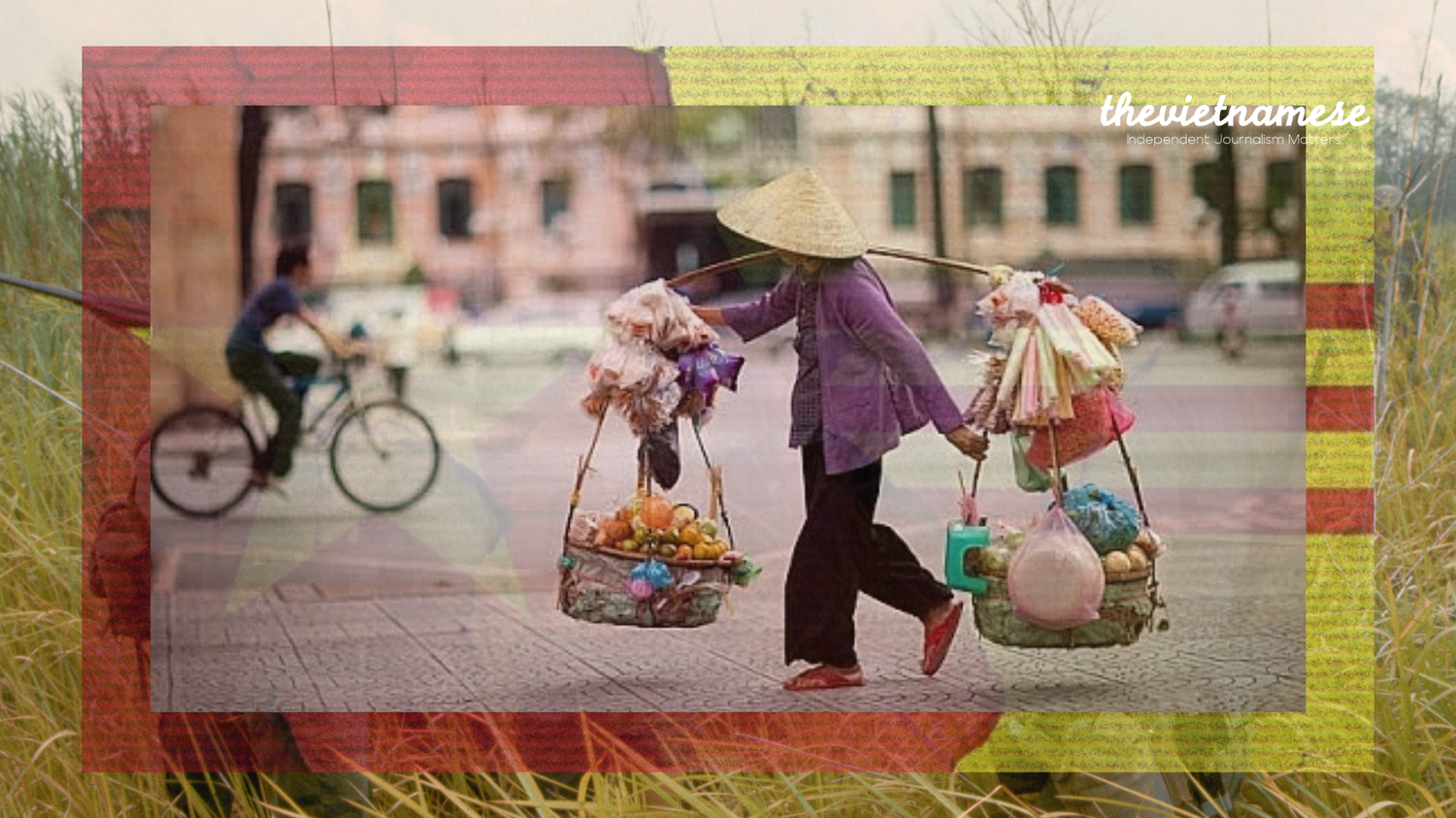
Thúc Kháng wrote this article in Vietnamese, published in Luat Khoa Magazine on June 25, 2025. Đàm Vĩnh Hằng translated it into English for The Vietnamese Magazine.
In the cacophony of social media, a familiar line is often deployed as a weapon. Every time someone is praised but later exposed as having once criticized the government—or worse, as a descendant of a former South Vietnamese official—the online crowd chants in unison: “I truly love the village, but since it sided with the French, I must hate it.”
This line originates from Ông Hai (Mr. Hai), a character in “Làng (The Village),” a short story by Kim Lân that is required reading in Việt Nam’s middle school literature curriculum. He utters the phrase upon hearing a rumor that his beloved village has collaborated with French colonialists. Faced with the dilemma of choosing between his village and the revolution, he chose the revolution.
Back then, we were taught that Ông Hai’s “hatred” was the ultimate form of patriotic love. But no matter how hard I tried, I could never find anything “great” about it—not then, and not now.
I once naively thought it was just a line in a story, just another thing we would immediately forget after reading. Who could have imagined it would become a cudgel an entire generation would use against one another in the name of “patriotism?”
The Disease of Wartime Mentality
Perhaps in times of war, the “love-hate” dichotomy made a certain brutal sense. But in today’s peacetime, it has morphed into a disease—a disease that afflicts without detection, and its victims are ready to lash out at anyone “reactionary” or “pro-West.”
It is a binary mindset embedded deep within our collective consciousness, a worldview that divides everything into two camps: friend or enemy, with nothing in between. The tragedy of this thinking lies in its brutal oversimplification of human relationships.
“If you don’t think like me, you are, by default, my adversary.”
Such a mindset kills the ability to coexist with differences. It erodes public space, turning what should be a forum to express unfamiliar, uncomfortable, or even opposing views into a battleground for asserting ideological purity.
An Education in “Us vs. Them”
I often reflect on my own generation, raised on lessons written in peacetime, yet soaked in the rhetoric of war. From literature to history books, we were taught stories with neatly divided sides: revolutionaries versus traitors, us versus them.
This wasn’t just fiction; it played out in our political life.
Consider the constitutional reform process in 2013. When the public was invited to give feedback, many citizens, intellectuals, and civil society groups proposed revising or abolishing Article 4, the clause granting the Communist Party exclusive leadership. In response, then-General Secretary Nguyễn Phú Trọng dismissed these suggestions as signs of “political, moral, and lifestyle degradation” and called for action to “deal with them.”
There was no dialogue, no debate. Only condemnation.
In the end, Article 4 remained untouched; the message was loud and clear: dissent is not a contribution; it is a threat.
Reclaiming Patriotism
At some point, I even forgot that a mature society is not one in perfect harmony, but one that can live with discord. Diversity of thought is not just a democratic virtue but a mark of ethical maturity.
It should be self-evident, yet rarely acknowledged: patriotism is not about erasing differences, nor should it be equated with hating those who think differently. Even Hồ Chí Minh, when speaking of his rival Ngô Đình Diệm, once remarked: “He loves his country in his own way.” That was a recognition of patriotism’s diversity—an understanding that love for one’s nation is not invalid just because it takes a different form.
A Scar, Not a Compass
We cannot keep living and thinking according to the logic that “the village sided with the French, so we must hate it.” If a country truly wishes to rise, it must learn to forgive, embrace its multi-faceted past, and open a future for difference.
Perhaps one day, Ông Hai’s words will return to their rightful place—not as a moral compass for today, but as a historical scar, a glimpse into the anguish of war. It should be read as the expression of a torn heart, not as a template for modern life.
Back in school, every time we were assigned an essay on that quote, I longed to write what I truly felt. But I knew that a child wearing the red scarf of the Young Pioneers wasn’t allowed to think outside the textbook. All we could do was give our full approval.
Now I wonder: Had I written what I truly felt back then, would I have faced the same fate as that Olympia contestant who was so quickly labeled and condemned?
Ông Hai’s quote has lived on for over seventy years. Sadly, it has not lived on as literature, but as a tool for exclusion.

